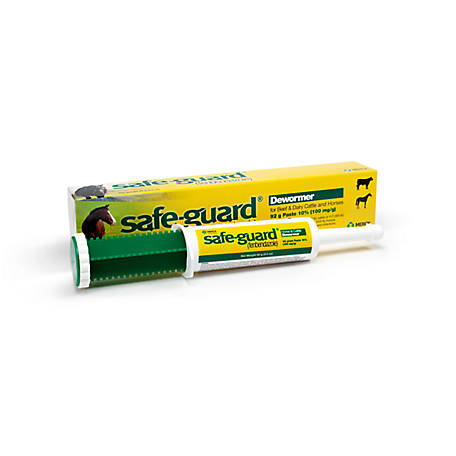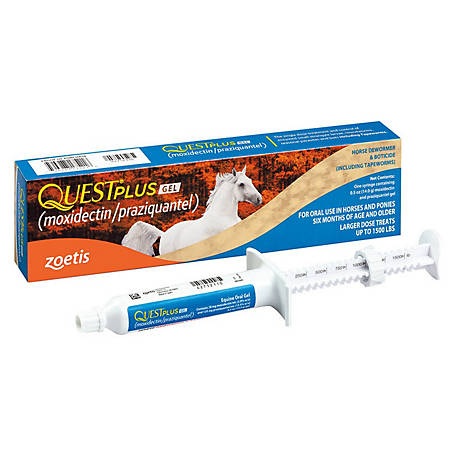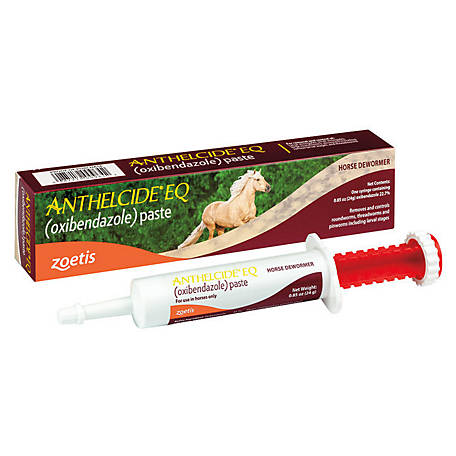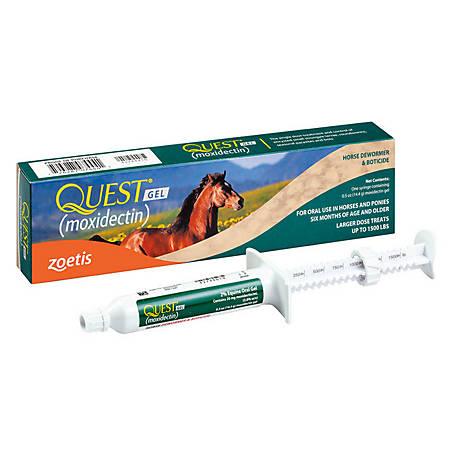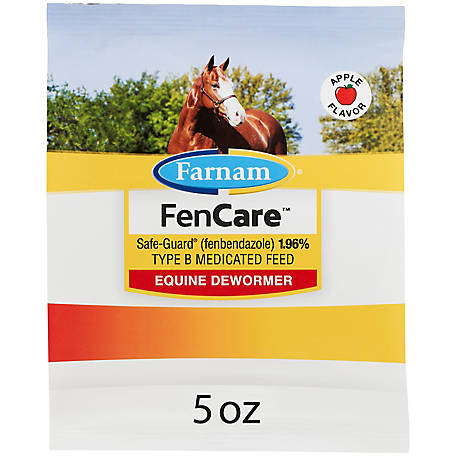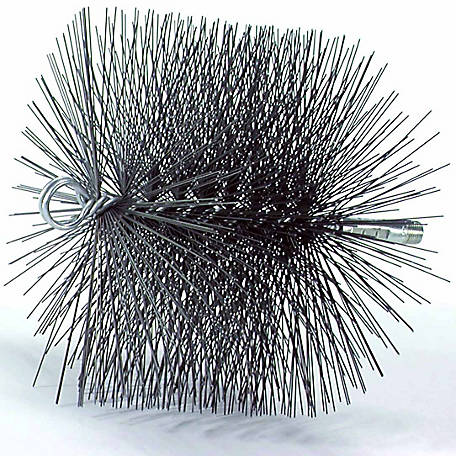





Safe-Guard Horse Dewormer Paste, 25g
Item # 5003451
Size: 25 g
Save 5% with TSC Subscription. Start a TSC Subscription and save 5%. It's free to sign up! Skip, pause or cancel at anytime. This offer is for Deliver...
Learn MoreReceive free standard delivery on all subscription eligible orders of $49 or more (additional charges may apply to oversized or bulk orders). ...
Learn MoreSmart SupplyTM
Auto order & save everyday
One time purchase
Shopping at
Grassland (franklin) TN
13 In Stock in Aisle 12
Delivering to
37027
Neighbor’s Club Members earn points with purchases.
Safe-Guard Horse Dewormer Paste, 25g
Item # 5003451






Save 5% with TSC Subscription. Start a TSC Subscription and save 5%. It's free to sign up! Skip, pause or cancel at anytime. This offer is for Deliver...
Learn MoreReceive free standard delivery on all subscription eligible orders of $49 or more (additional charges may apply to oversized or bulk orders). ...
Learn MoreSafe-Guard Horse Dewormer Paste, 25g
Item # 5003451






Size: 25 g
Save 5% with TSC Subscription. Start a TSC Subscription and save 5%. It's free to sign up! Skip, pause or cancel at anytime. This offer is for Deliver...
Learn MoreReceive free standard delivery on all subscription eligible orders of $49 or more (additional charges may apply to oversized or bulk orders). ...
Learn MoreNeighbor’s Club Members earn points with purchases.
Treat your horses with Merck Animal Health Equine Dewormer Paste. The antiparasitic action of Safe-Guard (fenbendazole) Paste 10% is believed to be due to the inhibition of energy metabolism in the parasite, and each gm of Safe-Guard (fenbendazole) horse worm medicine contains 100 mg of fenbendazole for effective treatment. The artificial apple cinnamon flavor makes it easy to use this horse wormer on your animals.
- Actions: Antiparasitic action is believed to be due to the inhibition of energy metabolism in the parasite
- Horse Indications: Safe-Guard (fenbendazole) Paste 10% horse wormer is indicated for the control of large strongyles (Strongylus edentatus, S. equinus, S. vulgaris), encysted early third stage (hypobiotic), late third stage & fourth stage cyathostome larvae, small strongyles, pinworms (Oxyuris equi), ascarids (Parascaris equorum) & arteritis caused by fourth stage larvae of Strongylus vulgaris in horses. Safe-Guard (fenbendazole) Paste 10% is approved for use concomitantly with an approved form of trichlorfon. Trichlorfon is approved for the treatment of stomach bots (Gasterophilus spp.) in horses. Refer to the manufacturer's label for directions for use and cautions for trichlorfon. Contraindications: There are no known contraindications for the use of Safe-Guard (fenbendazole) Paste 10% in horses.
- Dosage: Safe-Guard (fenbendazole) Paste 10% horse worm medicine is administered orally at a rate of 2.3 mg/lb. (5 mg/kg) for the control of large strongyles, small strongyles & pinworms. One syringe will deworm a 1100 lb. horse. for foals & weanlings (less than 18 months of age) where ascarids are a common problem, the recommended dose is 4.6 mg/lb. (10 mg/kg); one syringe will deworm a 550 lb. horse. for control of encysted early third stage (hypobiotic), late third stage & fourth stage cyathostome larvae, & fourth stage larvae of Strongylus vulgaris, the recommended dose is 4.6 mg/lb. (10 mg/kg) daily for 5 consecutive days; administer one syringe for each 550 lb. body weight per day.
- Precautions: Side effects associated with Safe-Guard (fenbendazole) Paste 10% could not be established in well-controlled safety studies in horses with single doses as high as 454 mg/lb. (1,000 mg/kg) and 15 consecutive daily doses of 22.7 mg/lb. (50 mg/kg). Particularly with higher doses, the lethal action of fenbendazole may cause the release of antigens by the dying parasites, which may result in either a local or systemic hypersensitive reaction. As with any drug, these reactions should be treated symptomatically. Safe-Guard (fenbendazole) Paste 10% has been evaluated for safety in pregnant mares during all stages of gestation with doses as high as 11.4 mg/lb. (25 mg/kg) and in stallions with doses as high as 11.4 mg/lb. (25 mg/kg). No adverse effects on reproductivity were detected. The recommended dose for control of 4th stage larvae of Strongylus vulgaris, 4.6 mg/lb. (10 mg/kg) daily for 5 consecutive days, has not been evaluated for safety in stallions or pregnant mares. Internal Parasites: Regular deworming at intervals of 6-8 weeks may be required due to the possibility of reinfection. Migrating Tissue Parasites: In the case of 4th stage larvae of Strongylus vulgaris, treatment and retreatment should be based on the life cycle and the epidemiology. Treatment should be initiated in the spring and repeated in the fall after a 6 month interval. Optimum Deworming Program for control of S. vulgaris: Optimum reduction of S. vulgaris infections is achieved by reducing the infectivity of the pastures. When horses are running on pasture, in temperate N. America, maximum pasture infectivity occurs in Oct-Dec. If horses are removed from those pastures in Jan, pasture infectivity will decline to zero by Jul 1. Egg production of S. vulgaris is minimal from Jan through Apr, peaking in Aug and declining to minimal values in Dec.
- WARNING: Do not use in horses intended for food.
Similar Items
-
-
Top Rated
-
-
Top Rated
-
Top Rated
-
-
-
Top Rated
-
-
Top Rated
-
Top Rated
-
Top Rated
Items You May Like
-
Top Rated
-
-
Top Rated
-
Top Rated
-
-
Top Rated
-
Top Rated
-
Top Rated
-
-
Top Rated
-
-
Customers Also Bought
-
-
Top Rated
-
-
Top Rated
-
Top Rated
-
Top Rated
-
-
Top Rated
-
Top Rated
-
Top Rated
-
-
Top Rated
Reviews
Rating Snapshot
5 starsstars
4 starsstars
3 starsstars
2 starsstars
1 starstars
Overall Rating
Review this Product
Most Helpful Favorable Review
Use for Chickens
Most Helpful Critical Review
Easy to dispense.
- purchase
- price
- satisfaction
- protection
- safety
- results
- value
- appointment
Biohacking
Yes, I recommend this product.
Great product!
Simple and easy
Yes, I recommend this product.
Happy Ending Farm

Originally posted on SCBT





